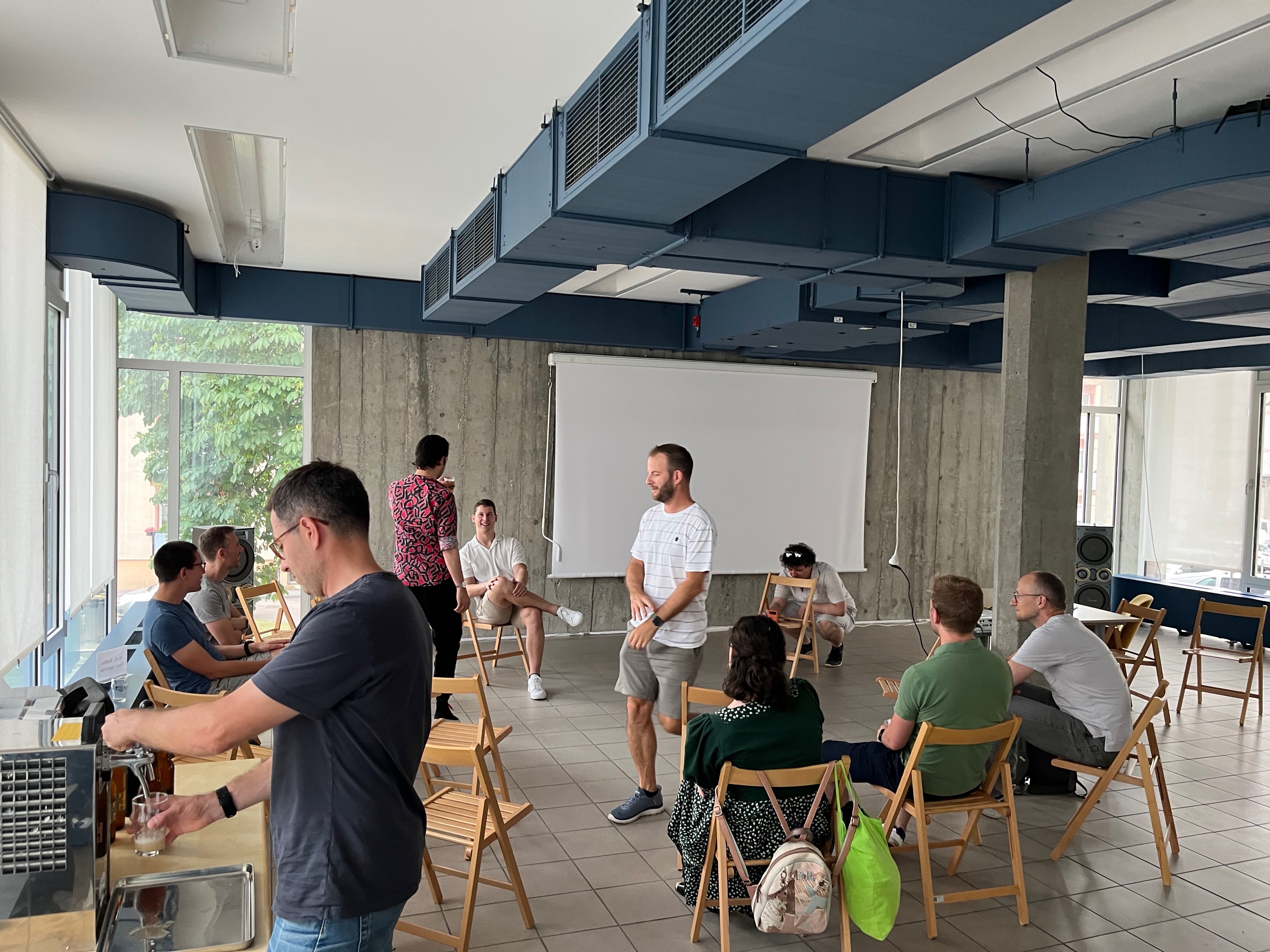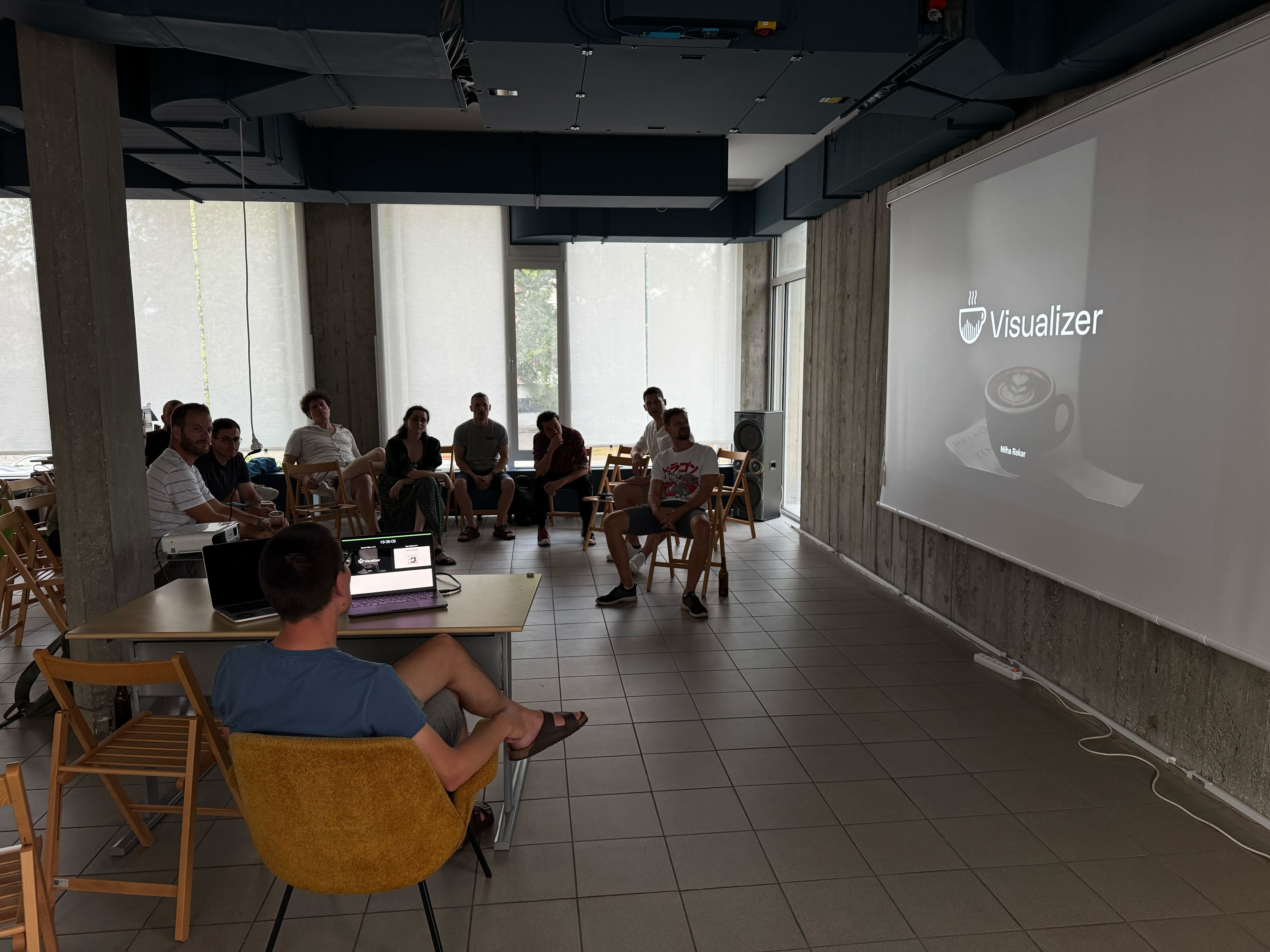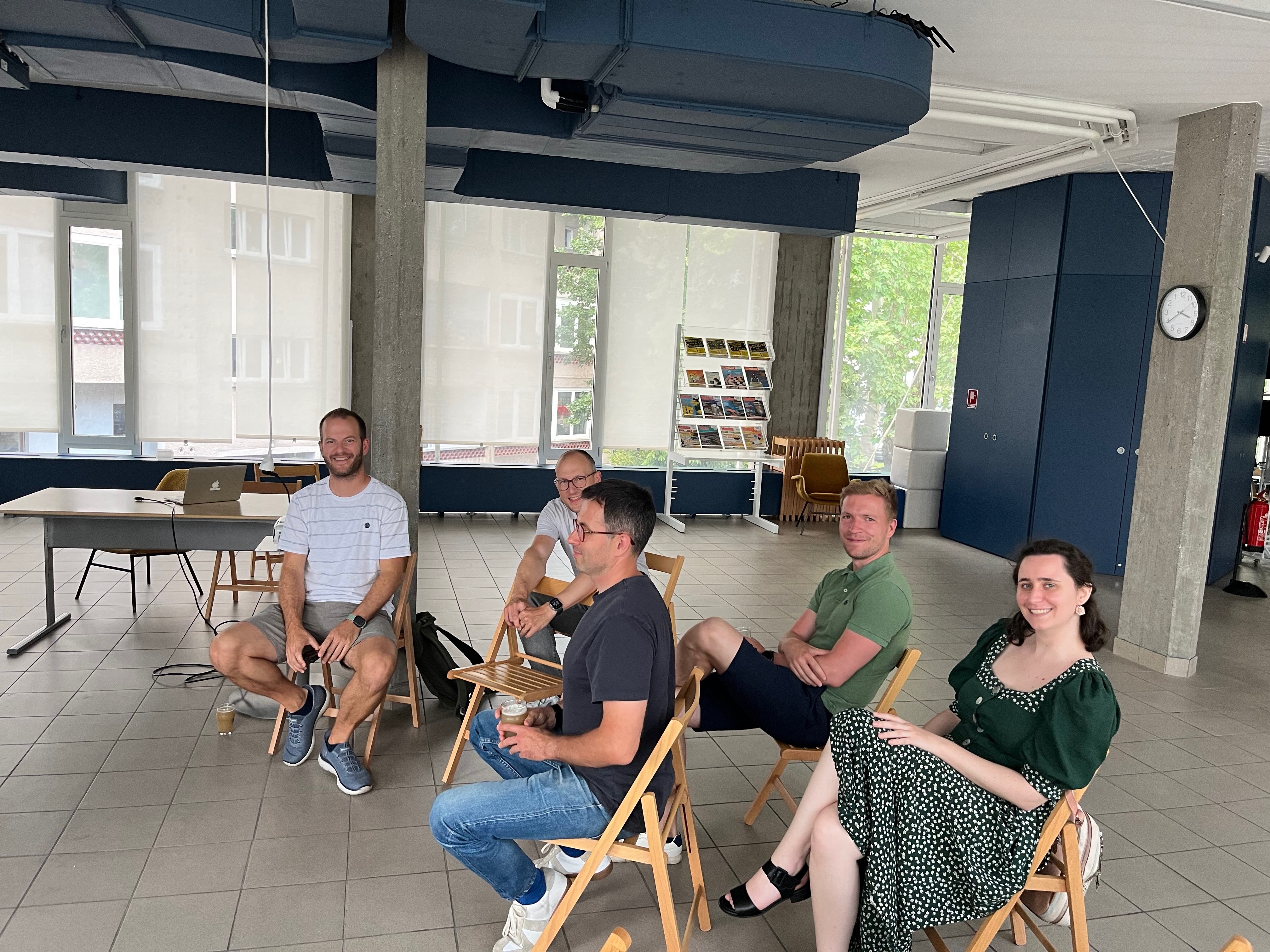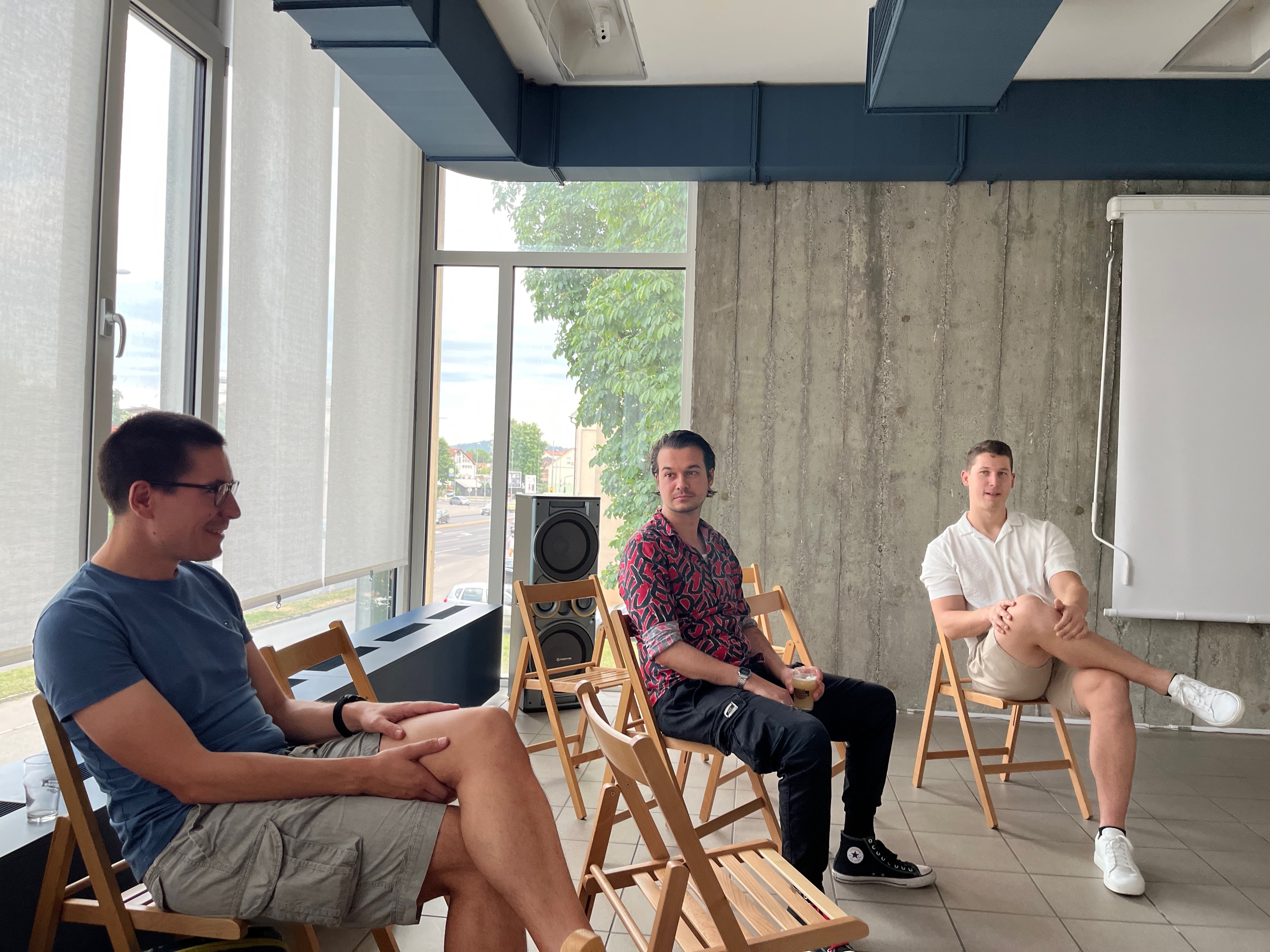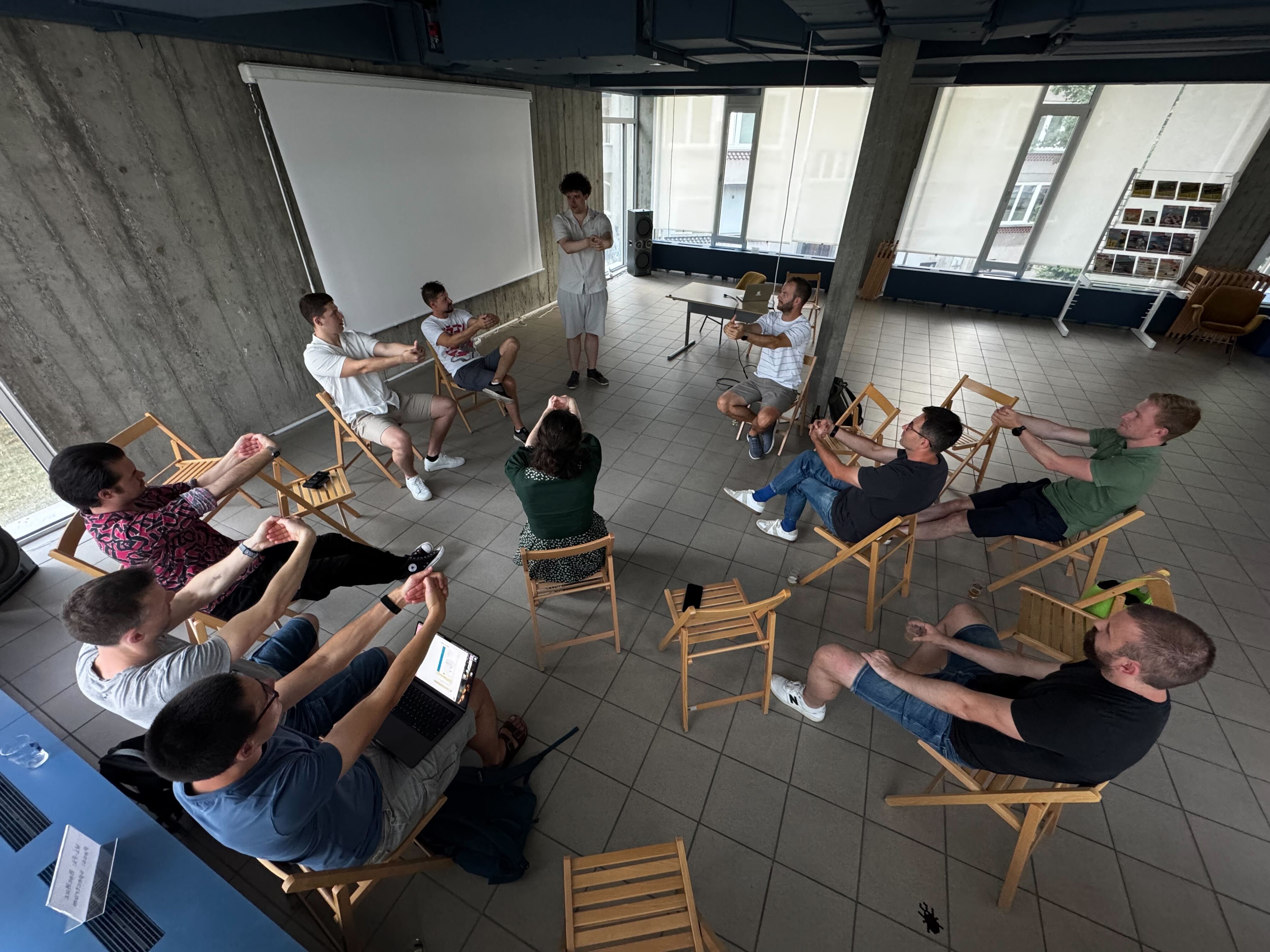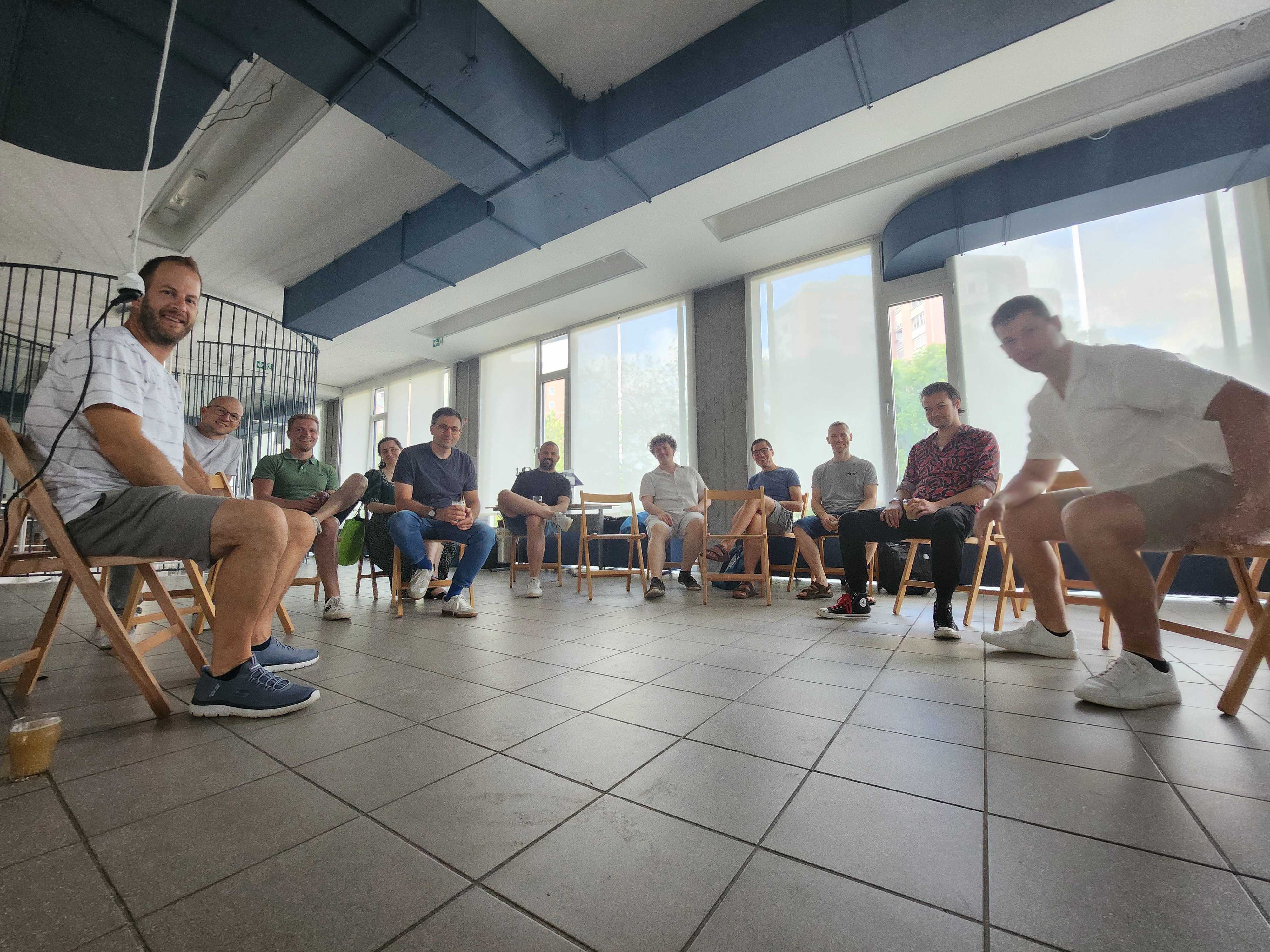As the season drew to a close, Slovene Rubyists gathered for our Spring Meetup, once again returning to the familiar setting of the Computer History Museum in Ljubljana. While the venue was well known, the meetup introduced a refreshing new format, proposed by the event’s main organizer, Krištof Črnivec.
Departing from the more rigid structure of past meetups (presentations followed by Q&As), this time we experimented with a more interactive approach, blending show-and-tell segments with open-floor discussions. Another welcome novelty was the introduction of an open beer tap, courtesy of a local craft brewery, which helped ease us into the new format.
Lenart Rudel was the first to give a lightning talk. Over the past two years, he struggled with persistent wrist inflammation, a common issue among software engineers. He tried all the doctor-recommended solutions, from ergonomic accessories to stretching and mobility exercises. While these approaches didn’t resolve the issue as much as he had hoped, he found a surprising breakthrough in pain reduction by switching from typing to dictation for most of his non-coding text input.
Lenart introduced us to his favorite tool for this purpose, SuperWhisper, a Mac and iOS app designed for real-time transcription and voice-to-text conversion. It uses OpenAI’s Whisper model for transcription and integrates popular LLMs for customizable text refinement.
Lenart’s talk sparked a lively discussion, not only about recent advances in speech transcription, but also about the growing hype surrounding the use of LLMs in software engineering and the emergence of the “vibe coding” phenomenon. Most attendees expressed skepticism toward this trend, aligning with Krištof’s assertion that “we are not (yet) bullish on AI,” which echoed Martin Artnik’s critique of AI-dependent coding from his talk earlier this year. Despite the prevailing skepticism, there was broad agreement that LLMs are valuable for handling documentation tasks, and Miha Filej made a compelling case for using AI-powered coding tools (his current favorite being Cursor) in basic testing scenarios.
Miha Rekar delivered the second lightning talk of the day, sharing the fascinating details behind his susccessful web app, visualizer.coffee. Built with a Ruby backend, the app provides shareable analytics and tracking of espresso shot parameters for users of boutique coffee machines such as Decent, Beanconqueror, Gaggiuino, Smart Espresso Profiler, and Pressensor. First launched in 2020 and regularly updated since, visualizer.coffee is now actively used by nearly 6,000 coffee enthusiasts, with over 3 million shot entries recorded to date. While most features are available for free, an optional subscription unlocking the premium version became a successful side business for Miha over the years, covering all of his lavish coffee-related expenses.
Once the formal session concluded and the beer tap ran dry, the group headed to the nearest pub, where a fresh stream of cold drinks and lively conversation kept the night alive.
Photos
Photos courtesy of Miha Filej, Ivo Pačnik, and Matic Kocijančič.
